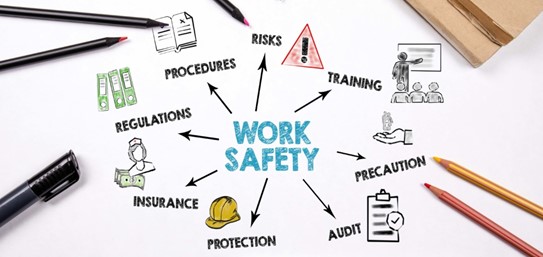Rodgers v Leeds Laser Cutting Ltd – The Employment Tribunal held that Mr Rogers, who was dismissed after he refused to return to the workplace during the Coronavirus pandemic, was not automatically unfairly dismissed. He appealed to the Employment Appeal Tribunal (EAT) and his appeal was dismissed.
The legals you need to know
When reading the facts of this case, it is useful to understand the following:
- In certain circumstances, a dismissal is deemed automatically unfair. This includes dismissals for reasons connected to asserting a statutory right under the Employment Rights Act 1996 (ERA).
- There is no qualifying period of service in most automatic unfair dismissal cases meaning that the employee is protected from day one of employment (i.e., not only after 2 years’ service).
- Section 100 of the ERA protects employees by providing that a dismissal shall be automatically unfair where the reason for the dismissal is covered by one of the sections.
In this case, the employee, Mr Rogers, sought to rely on sections 100 (1)(d) and 100(1)(e):
- Dismissal for leaving or staying away from dangerous workplace (section 100(1)(d)). Where an employee reasonably believes that they are in serious and imminent danger and they could not be reasonably expected to avert it, they are protected from dismissal if they leave, propose to leave, or refuse to return to the workplace while the danger persists.
- Dismissal for taking action to prevent danger (section 100(1)(e)). Employees who, in circumstances of danger that they reasonably believed to be serious and imminent, took or proposed to take appropriate steps to protect themselves or other persons from danger, are protected from dismissal on that basis. Section 100(1)(e) also protects those who communicate these circumstances by appropriate means.
The Appeal
The EAT stated that leaving, or refusing to return to, a place of work can only fall within section 100(1)(d), and that leaving, or refusing to return to work cannot represent the taking of an ‘appropriate step’ under section 100(1)(e). The EAT therefore considered this case under section 100(1)(d) only.
The following were considered by the EAT:
- They considered the requirement that there must be ‘circumstances of danger’ – the Employment Tribunal had accepted that COVID-19 created at least some circumstances of danger at work and elsewhere, and so this element of S.100(1)(d) was satisfied.
- The requirement to believe the circumstances of danger to be ‘serious and imminent’:
- accepted this requires reasonable belief on Mr Roger’s part. Mr Rogers argued that the Employment Tribunal was wrong in deciding that, because his belief was one of a serious and imminent danger at large, his belief that his workplace presented a serious and imminent danger was not objectively reasonable; and
- the Employment Tribunal’s interpretation was that Mr Rogers considered that his workplace constituted no greater risk than the risk at large, and that he did not reasonably believe that there were circumstances of danger that were serious and imminent, at work or at large, that prevented him from returning to his workplace.
- They accepted that an employee could reasonably believe that there is a serious and imminent circumstance of danger that exists outside the place of work that may prevent them from returning to that place, and that such circumstances could potentially fall within S.100(1)(d). However, the fact that Mr Rogers had genuine concerns about COVID-19, and particularly about the safety of his children (a baby and a child with sickle-cell anemia), did not mean that he necessarily had a genuine belief that there were serious and imminent circumstances of danger, either at work or elsewhere, that prevented him from returning to the workplace itself.
- The Employment Tribunal had made a number of relevant findings that contradicted Mr Rogers claim that serious and imminent circumstances of danger prevented him from returning to work. These included the following:
- The workplace was large and few people worked in it;
- Mr Rogers had remained at work from the date of the announcement of the lockdown on 24 March 2020 until he left at his normal time on 27 March 2020;
- Mr Rogers could generally maintain social distance at work;
- The Employment Tribunal rejected Mr Roger’s contention that he was forced to go out on deliveries;
- Mr Rogers had not asked for a mask;
- Masks were available;
- Mr Rogers did not say that he would not be returning when he left on 27 March 2020;
- Mr Rogers drove a friend to hospital while he was meant to be self-isolating; and
- Mr Rogers worked in a pub during the lockdown.
Conclusion
The EAT held that the Employment Tribunal was entitled to find that there were steps that Mr Rogers could reasonably have taken to avoid the danger, even having regard to his concerns about the health of his children.
Mr Rogers could have taken steps both at large and at work, such as wearing a face mask, socially distancing, sanitising and washing his hands. He did not declare any particular difficulty about his journey from home to work that would require him to take any additional steps, different to those that were available to him at work.
No error of law was established. It was accepted that the pandemic could, in principle, give rise to circumstances of danger that an employee could reasonably believe to be serious and imminent, but this case failed on the facts.
Get in touch with us today to discuss how we can help you and provide training within your workplace!
Email hello@peachlaw.co.uk , connect with us on LinkedIn and drop us a message – Peach Law (HR & Employment Law Specialists– or pick up the phone and give us a call on 0161 478 3800.
We’re here to help you and your business!


